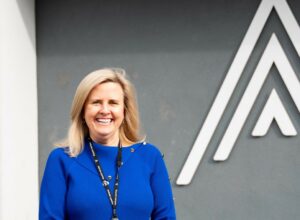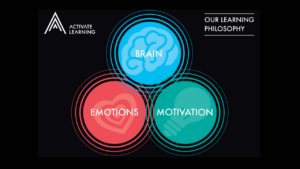
For any organisation, creating the right culture for unlocking the potential of its people is key to success. The unique challenge within an educational institution is the ambition to engage the staff as well as the students in their own learning and development.
At Activate Learning, our organisational aspiration is to create a culture which empowers all staff and students to learn, grow and develop together. The aim is for staff at all levels to act as inspirational role models to students through the ways in which they engage in their own learning and skills development. This might take the form of learning in an applied way, ‘on the job’, through special projects and sideways or upward moves as well as one-to-one coaching and the more traditional routes of structured professional development.
For students, this will mean developing their work-ready knowledge, skills and behaviours by accessing their learning through different modes of delivery and assessment. This might be in person on campus with input from employers, in the field at a workplace, online or through mixed reality technology that enables them to practise vocational skills in a safe, sustainable way.

The Learning Philosophy – Brain, Motivation and Emotions
We have engaged in literally thousands of conversations with individuals over the years about what drives them to learn and succeed. As a result, we have developed our Learning Philosophy at Activate Learning which recognises the importance of three elements that we believe to be critical to a person’s successful learning and development: Brain, Motivation, Emotions. Finding the sweet spot between these elements can take us to the ‘holy grail’ of learning.
The brain is like a muscle, the more you use it, the cleverer you will become. Through sustained practice, effort and being open to learning from failure, you will achieve higher levels of confidence, self-belief and mastery of skills. Having a growth mindset and recognising that intelligence is not predetermined at birth is a powerful message to any individual who is focused on their journey of self-development and improvement.
Whilst we may all have the neurological capacity to learn, we must be motivated to want to put in the hours of effort required for mastery. Enjoying your work or learning, seeing its relevance and how it fits into the bigger picture, having a passion and a goal means you are more likely to put in discretionary effort in the workplace or as a student and immerse yourself in your learning. Goals are personal to the individual and might relate to wellbeing, learning a new skill for the love of learning, securing the first step on your chosen career path, or being promoted to a new job or to higher levels of study.
Motivation through a growth mindset
Having a growth mindset and being motivated are both important ingredients in the learning process; feeling in the right emotional place determines whether you can access your learning and perform at your best. Whatever role you play in a college, be it as a member of staff, student, apprentice or external stakeholder, feeling emotionally secure and psychologically safe is key to whether you can learn and develop. Too often we are limited by our own feelings of inadequacy and self-doubt, held back by ‘not feeling good enough’. Negative emotions such as stress, anxiety, fear and worry inhibit our learning and progress.
Equally, positive emotions can accelerate the learning process. Positive emotions can result in individuals having higher levels of interest, curiosity, engagement, creativity and enjoyment of learning. These feelings can lead to a person being more open to receiving and acting upon feedback and learning from failure. Whenever we feel emotionally, confident and self-assured, our ability to learn new skills accelerates.
Of course, as part of the process of creating these positive emotions, it is so important that we feel a sense of belonging, whether it is to a team of workplace colleagues or a class of fellow students. Creating feelings of belonging all starts with great relationships based on mutual respect and trust. These are the cornerstones of great organisational cultures and brilliant learning.
This in turn unlocks our ability to achieve more than we might have ever believed we were capable of!